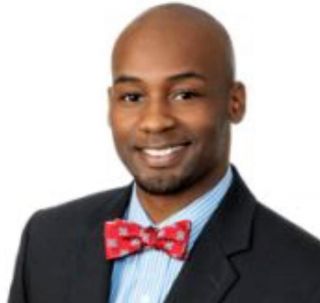Friends
What More Could Myron May Have Done?
Actively seeking treatment did not help the FSU shooter
Posted December 3, 2014

The typical post-mortem in the wake of a tragedy involving a person with mental illness goes something like this: The family knew something was desperately wrong, but because the person lacked insight into his illness and refused medical care, nothing could be done to help him. There is then a lot of hand wringing about how our laws need to change and questions inevitably are raised about the competing rights of individuals and society.
This is not what happened in the case of Myron May and the Florida State library shootings.
Thanks to exceptional reporting by Tampa Bay Times reporter Michael LaForgia, we learn that a darker, more shocking scenario ensued.
LaForgia interviewed Danielle Nixon, May’s former girlfriend and a pediatrician, and Kimberly Snagg, a Houston lawyer who described May as one of her best friends. The picture painted by these professionals looks very different. They describe a man who though hearing voices and suffering from paranoia, actively sought help from mental health professionals, not once, but multiple times. Each time, however, the mental health system proved itself incompetent.
Six months into his job as a prosecutor in the Dona Ana County District Attorney’s Office in New Mexico, when May couldn’t concentrate, he saw a mental health professional. Prescribed Wellbutrin, an antidepressant, and Vyvanse, a medication for attention deficit, May took these drugs for three weeks. He suffered a panic attack at work. A second panic attack had May returning to his provider for an adjustment to his medications.
Was May told that Wellbutrin and Vyvanse taken together can in rare cases cause paranoia?
By late summer, May’s friends said he’d begun acting strangely. He said he feared that his neighbors were watching him. On September 7, May told officers of the Las Cruces Police Department that someone was watching him through a camera hidden in his apartment, but the police laughed at him. He was hearing voices coming in through the walls as he bathed. He complained that he wasn’t sleeping because of his neighbors’ constant spying and that their voices kept him up. May said he wanted to buy a gun and take revenge on his neighbors.
Frightened, May’s friends contacted his mental health care provider expressing concern. The provider met with May and declared him to be fine.
Within a few days, May voluntarily checked himself into Mesilla Valley Hospital, a mental health center. He was released four days later with a prescription for Seroquel, a powerful antipsychotic.
On October 5, May drove to Denver and back, making frantic phone calls to his friends from the road. The police were on to him, his hotel room was bugged, he was being followed. He said he would be a millionaire when he brought justice to the crooked cops who were persecuting him.
May’s friends contacted Mesilla Valley Hospital and reported his frightening behavior to the doctor who’d prescribed the Seroquel. The doctor said, “I can’t really do anything. He needs to come back on his own.”
Really?
Two days later, May pulled into the Dona Ana County sheriff’s office and dialed his friend Kimberly Snagg’s number. He told her he couldn’t take it anymore and was going to turn himself in. Listening as May tried to surrender, Snagg heard the woman at the desk say he wasn’t wanted on any charges. When Snagg explained that May was a lawyer in the midst of a severe mental breakdown and pleaded with the woman to detain May, the woman said, “My child has a program that starts in a few minutes. It’s 4:58 and I don’t have time.”
Weeks later, Myron De’Shawn May, a 31-year old man who grew up in poverty, graduated from Florida State University with honors, and worked his way through law school to build a stellar career, walked into Florida State’s Strozier Library and wounded three students before he was gunned down by police.
May couldn’t have been more cooperative and more eager to get help. His friends were supportive and did everything they could for him.
The mental health system and the police failed May at every turn.
Shame on them and shame on us for tolerating such a system.


